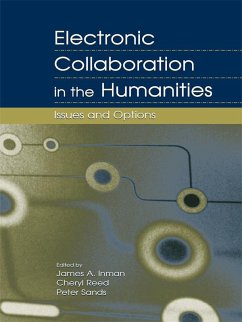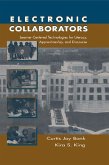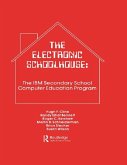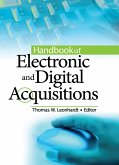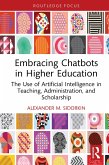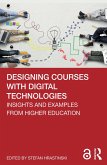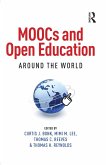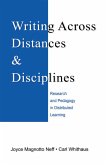Electronic Collaboration in the Humanities (eBook, ePUB)
Issues and Options
Redaktion: Inman, James A.; Sands, Peter; Reed, Cheryl
41,95 €
41,95 €
inkl. MwSt.
Sofort per Download lieferbar

21 °P sammeln
41,95 €
Als Download kaufen

41,95 €
inkl. MwSt.
Sofort per Download lieferbar

21 °P sammeln
Jetzt verschenken
Alle Infos zum eBook verschenken
41,95 €
inkl. MwSt.
Sofort per Download lieferbar
Alle Infos zum eBook verschenken

21 °P sammeln
Electronic Collaboration in the Humanities (eBook, ePUB)
Issues and Options
Redaktion: Inman, James A.; Sands, Peter; Reed, Cheryl
- Format: ePub
- Merkliste
- Auf die Merkliste
- Bewerten Bewerten
- Teilen
- Produkt teilen
- Produkterinnerung
- Produkterinnerung

Bitte loggen Sie sich zunächst in Ihr Kundenkonto ein oder registrieren Sie sich bei
bücher.de, um das eBook-Abo tolino select nutzen zu können.
Hier können Sie sich einloggen
Hier können Sie sich einloggen
Sie sind bereits eingeloggt. Klicken Sie auf 2. tolino select Abo, um fortzufahren.

Bitte loggen Sie sich zunächst in Ihr Kundenkonto ein oder registrieren Sie sich bei bücher.de, um das eBook-Abo tolino select nutzen zu können.
Explores new and important ways for humanities scholars to collaborate across disciplines via electronic media, and offers models for collaborative interaction.
- Geräte: eReader
- mit Kopierschutz
- eBook Hilfe
- Größe: 1.83MB
Andere Kunden interessierten sich auch für
![Electronic Collaborators (eBook, ePUB) Electronic Collaborators (eBook, ePUB)]() Electronic Collaborators (eBook, ePUB)54,95 €
Electronic Collaborators (eBook, ePUB)54,95 €![The Electronic Schoolhouse (eBook, ePUB) The Electronic Schoolhouse (eBook, ePUB)]() The Electronic Schoolhouse (eBook, ePUB)54,95 €
The Electronic Schoolhouse (eBook, ePUB)54,95 €![Handbook of Electronic and Digital Acquisitions (eBook, ePUB) Handbook of Electronic and Digital Acquisitions (eBook, ePUB)]() Thomas W LeonhardtHandbook of Electronic and Digital Acquisitions (eBook, ePUB)35,95 €
Thomas W LeonhardtHandbook of Electronic and Digital Acquisitions (eBook, ePUB)35,95 €![Embracing Chatbots in Higher Education (eBook, ePUB) Embracing Chatbots in Higher Education (eBook, ePUB)]() Alexander M. SidorkinEmbracing Chatbots in Higher Education (eBook, ePUB)20,95 €
Alexander M. SidorkinEmbracing Chatbots in Higher Education (eBook, ePUB)20,95 €![Designing Courses with Digital Technologies (eBook, ePUB) Designing Courses with Digital Technologies (eBook, ePUB)]() Designing Courses with Digital Technologies (eBook, ePUB)37,95 €
Designing Courses with Digital Technologies (eBook, ePUB)37,95 €![MOOCs and Open Education Around the World (eBook, ePUB) MOOCs and Open Education Around the World (eBook, ePUB)]() MOOCs and Open Education Around the World (eBook, ePUB)38,95 €
MOOCs and Open Education Around the World (eBook, ePUB)38,95 €![Writing Across Distances and Disciplines (eBook, ePUB) Writing Across Distances and Disciplines (eBook, ePUB)]() Joyce Magnotto NeffWriting Across Distances and Disciplines (eBook, ePUB)40,95 €
Joyce Magnotto NeffWriting Across Distances and Disciplines (eBook, ePUB)40,95 €-
-
-
Explores new and important ways for humanities scholars to collaborate across disciplines via electronic media, and offers models for collaborative interaction.
Dieser Download kann aus rechtlichen Gründen nur mit Rechnungsadresse in A, B, BG, CY, CZ, D, DK, EW, E, FIN, F, GR, HR, H, IRL, I, LT, L, LR, M, NL, PL, P, R, S, SLO, SK ausgeliefert werden.
Produktdetails
- Produktdetails
- Verlag: Taylor & Francis eBooks
- Seitenzahl: 448
- Erscheinungstermin: 3. Oktober 2003
- Englisch
- ISBN-13: 9781135637293
- Artikelnr.: 42711461
- Verlag: Taylor & Francis eBooks
- Seitenzahl: 448
- Erscheinungstermin: 3. Oktober 2003
- Englisch
- ISBN-13: 9781135637293
- Artikelnr.: 42711461
- Herstellerkennzeichnung Die Herstellerinformationen sind derzeit nicht verfügbar.
James A. Inman, Cheryl Reed, Peter Sands
Contents: M. Vielstimmig
A Word to the Fore. J.A. Inman
C. Reed
P. Sands
Preface: Issues and Options for Electronic Collaboration in the Humanities: A Framework. Part I:Theories of Electronic Collaboration.S. Turkle
Collaborative Selves
Collaborative Worlds: Identity in the Information Age. J. Carlacio
What's So Democratic About CMC? The Rhetoric of Techno-Literacy in the New Millennium. R.J. Rickley
Computer-Mediated Communication as Reflective Rhetoric-in-Action: Dialogic Interaction
Technology
and Cross-Curricular Thinking. J.A. Inman
Electracy for the Ages: Collaboration With the Past and Future. R. Gajjala
A. Mamidipudi
Collaborating Across Contexts: Rethinking the Local and the Global
Theory and Practice. S. Tchudi
Response. Part II:Student Collaboration and Electronic Media.N. Knowles
M.W. Hennequin
New Technology
Newer Teachers: Computer Resources and Collaboration in Literature and Composition. M.E. Fakler
J.E. Perisse
Voices Merged in Collaborated Conversation: The Peer Critiquing Computer Project. A.L. Trupe
Reentry Women Students' Online Collaboration Patterns: Synchronous Conferencing in a Basic Writing Class. J.B. Paoletti
M.C. Sies
V. Jenkins
Using a Virtual Museum for Collaborative Teaching
Research
and Service. D.S. Corrigan
S.M. Gers
Across the Cyber Divide: Connecting Freshman Composition Students to the 21st Century. C.L. Prell
Web Writing and Service Learning: A Call for Training as a Final Deliverable. B. Freidheim
Response. Part III:Faculty Collaboration and Electronic Media.C. Reed
D.M. Formo
Writers Anomalous: Wiring Faculty Research. D.N. Sewell
What's in a Name? Defining Electronic Community. K. McComas
Cow Tale: A Story of Transformation in Two MOO Communities. C. Szylowicz
J. Kibbee
The Collaboration That Created the Kolb-Proust Archive: Humanities Scholarship
Computing
and the Library. T.L. Benson
Response. Part IV:Electronic Collaboration and the Future.T.A. Jackson
Imagining Future(s): Toward a Critical Pedagogy for Emerging Technologies. P.J. Morris
II
Critical and Dynamic Literacy in the Computer Classroom: Bridging the Gap Between School Literacy and Workplace Literacy. T. Fanderclai
Collaborative Research
Collaborative Thinking: Lessons From the Linux Community. P. Sands
Current and Future Research in the Production and Analysis of Electronic Text in the Humanities: Bridging Our Own "Two Cultures" With Integrated
Empirical Studies. J.C. Freeman
Imaging Florida: A Model Interdisciplinary Collaboration by the Florida Research Ensemble. R. Bass
Response. A.R. Gere
Afterword.
A Word to the Fore. J.A. Inman
C. Reed
P. Sands
Preface: Issues and Options for Electronic Collaboration in the Humanities: A Framework. Part I:Theories of Electronic Collaboration.S. Turkle
Collaborative Selves
Collaborative Worlds: Identity in the Information Age. J. Carlacio
What's So Democratic About CMC? The Rhetoric of Techno-Literacy in the New Millennium. R.J. Rickley
Computer-Mediated Communication as Reflective Rhetoric-in-Action: Dialogic Interaction
Technology
and Cross-Curricular Thinking. J.A. Inman
Electracy for the Ages: Collaboration With the Past and Future. R. Gajjala
A. Mamidipudi
Collaborating Across Contexts: Rethinking the Local and the Global
Theory and Practice. S. Tchudi
Response. Part II:Student Collaboration and Electronic Media.N. Knowles
M.W. Hennequin
New Technology
Newer Teachers: Computer Resources and Collaboration in Literature and Composition. M.E. Fakler
J.E. Perisse
Voices Merged in Collaborated Conversation: The Peer Critiquing Computer Project. A.L. Trupe
Reentry Women Students' Online Collaboration Patterns: Synchronous Conferencing in a Basic Writing Class. J.B. Paoletti
M.C. Sies
V. Jenkins
Using a Virtual Museum for Collaborative Teaching
Research
and Service. D.S. Corrigan
S.M. Gers
Across the Cyber Divide: Connecting Freshman Composition Students to the 21st Century. C.L. Prell
Web Writing and Service Learning: A Call for Training as a Final Deliverable. B. Freidheim
Response. Part III:Faculty Collaboration and Electronic Media.C. Reed
D.M. Formo
Writers Anomalous: Wiring Faculty Research. D.N. Sewell
What's in a Name? Defining Electronic Community. K. McComas
Cow Tale: A Story of Transformation in Two MOO Communities. C. Szylowicz
J. Kibbee
The Collaboration That Created the Kolb-Proust Archive: Humanities Scholarship
Computing
and the Library. T.L. Benson
Response. Part IV:Electronic Collaboration and the Future.T.A. Jackson
Imagining Future(s): Toward a Critical Pedagogy for Emerging Technologies. P.J. Morris
II
Critical and Dynamic Literacy in the Computer Classroom: Bridging the Gap Between School Literacy and Workplace Literacy. T. Fanderclai
Collaborative Research
Collaborative Thinking: Lessons From the Linux Community. P. Sands
Current and Future Research in the Production and Analysis of Electronic Text in the Humanities: Bridging Our Own "Two Cultures" With Integrated
Empirical Studies. J.C. Freeman
Imaging Florida: A Model Interdisciplinary Collaboration by the Florida Research Ensemble. R. Bass
Response. A.R. Gere
Afterword.
Contents: M. Vielstimmig
A Word to the Fore. J.A. Inman
C. Reed
P. Sands
Preface: Issues and Options for Electronic Collaboration in the Humanities: A Framework. Part I:Theories of Electronic Collaboration.S. Turkle
Collaborative Selves
Collaborative Worlds: Identity in the Information Age. J. Carlacio
What's So Democratic About CMC? The Rhetoric of Techno-Literacy in the New Millennium. R.J. Rickley
Computer-Mediated Communication as Reflective Rhetoric-in-Action: Dialogic Interaction
Technology
and Cross-Curricular Thinking. J.A. Inman
Electracy for the Ages: Collaboration With the Past and Future. R. Gajjala
A. Mamidipudi
Collaborating Across Contexts: Rethinking the Local and the Global
Theory and Practice. S. Tchudi
Response. Part II:Student Collaboration and Electronic Media.N. Knowles
M.W. Hennequin
New Technology
Newer Teachers: Computer Resources and Collaboration in Literature and Composition. M.E. Fakler
J.E. Perisse
Voices Merged in Collaborated Conversation: The Peer Critiquing Computer Project. A.L. Trupe
Reentry Women Students' Online Collaboration Patterns: Synchronous Conferencing in a Basic Writing Class. J.B. Paoletti
M.C. Sies
V. Jenkins
Using a Virtual Museum for Collaborative Teaching
Research
and Service. D.S. Corrigan
S.M. Gers
Across the Cyber Divide: Connecting Freshman Composition Students to the 21st Century. C.L. Prell
Web Writing and Service Learning: A Call for Training as a Final Deliverable. B. Freidheim
Response. Part III:Faculty Collaboration and Electronic Media.C. Reed
D.M. Formo
Writers Anomalous: Wiring Faculty Research. D.N. Sewell
What's in a Name? Defining Electronic Community. K. McComas
Cow Tale: A Story of Transformation in Two MOO Communities. C. Szylowicz
J. Kibbee
The Collaboration That Created the Kolb-Proust Archive: Humanities Scholarship
Computing
and the Library. T.L. Benson
Response. Part IV:Electronic Collaboration and the Future.T.A. Jackson
Imagining Future(s): Toward a Critical Pedagogy for Emerging Technologies. P.J. Morris
II
Critical and Dynamic Literacy in the Computer Classroom: Bridging the Gap Between School Literacy and Workplace Literacy. T. Fanderclai
Collaborative Research
Collaborative Thinking: Lessons From the Linux Community. P. Sands
Current and Future Research in the Production and Analysis of Electronic Text in the Humanities: Bridging Our Own "Two Cultures" With Integrated
Empirical Studies. J.C. Freeman
Imaging Florida: A Model Interdisciplinary Collaboration by the Florida Research Ensemble. R. Bass
Response. A.R. Gere
Afterword.
A Word to the Fore. J.A. Inman
C. Reed
P. Sands
Preface: Issues and Options for Electronic Collaboration in the Humanities: A Framework. Part I:Theories of Electronic Collaboration.S. Turkle
Collaborative Selves
Collaborative Worlds: Identity in the Information Age. J. Carlacio
What's So Democratic About CMC? The Rhetoric of Techno-Literacy in the New Millennium. R.J. Rickley
Computer-Mediated Communication as Reflective Rhetoric-in-Action: Dialogic Interaction
Technology
and Cross-Curricular Thinking. J.A. Inman
Electracy for the Ages: Collaboration With the Past and Future. R. Gajjala
A. Mamidipudi
Collaborating Across Contexts: Rethinking the Local and the Global
Theory and Practice. S. Tchudi
Response. Part II:Student Collaboration and Electronic Media.N. Knowles
M.W. Hennequin
New Technology
Newer Teachers: Computer Resources and Collaboration in Literature and Composition. M.E. Fakler
J.E. Perisse
Voices Merged in Collaborated Conversation: The Peer Critiquing Computer Project. A.L. Trupe
Reentry Women Students' Online Collaboration Patterns: Synchronous Conferencing in a Basic Writing Class. J.B. Paoletti
M.C. Sies
V. Jenkins
Using a Virtual Museum for Collaborative Teaching
Research
and Service. D.S. Corrigan
S.M. Gers
Across the Cyber Divide: Connecting Freshman Composition Students to the 21st Century. C.L. Prell
Web Writing and Service Learning: A Call for Training as a Final Deliverable. B. Freidheim
Response. Part III:Faculty Collaboration and Electronic Media.C. Reed
D.M. Formo
Writers Anomalous: Wiring Faculty Research. D.N. Sewell
What's in a Name? Defining Electronic Community. K. McComas
Cow Tale: A Story of Transformation in Two MOO Communities. C. Szylowicz
J. Kibbee
The Collaboration That Created the Kolb-Proust Archive: Humanities Scholarship
Computing
and the Library. T.L. Benson
Response. Part IV:Electronic Collaboration and the Future.T.A. Jackson
Imagining Future(s): Toward a Critical Pedagogy for Emerging Technologies. P.J. Morris
II
Critical and Dynamic Literacy in the Computer Classroom: Bridging the Gap Between School Literacy and Workplace Literacy. T. Fanderclai
Collaborative Research
Collaborative Thinking: Lessons From the Linux Community. P. Sands
Current and Future Research in the Production and Analysis of Electronic Text in the Humanities: Bridging Our Own "Two Cultures" With Integrated
Empirical Studies. J.C. Freeman
Imaging Florida: A Model Interdisciplinary Collaboration by the Florida Research Ensemble. R. Bass
Response. A.R. Gere
Afterword.
